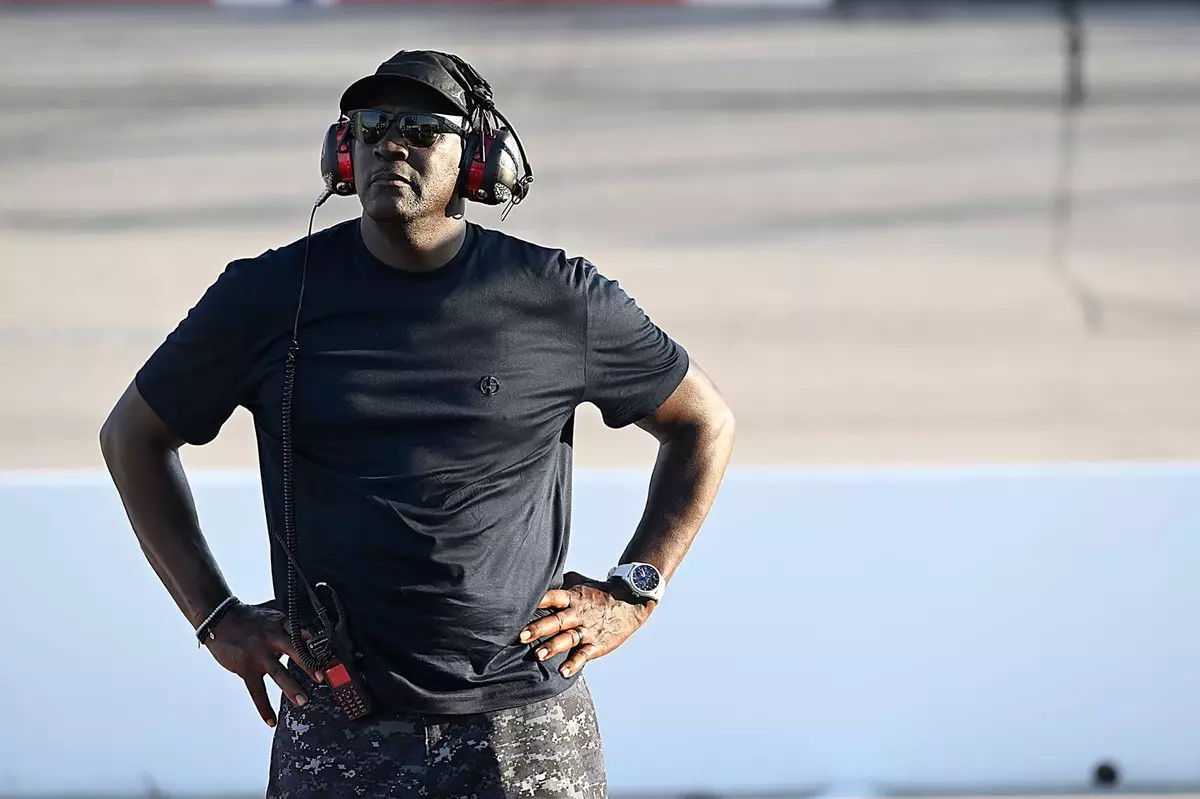In an unexpected turn of events, 23XI Racing and Front Row Motorsports have initiated a joint legal battle against NASCAR, claiming that the organization has exerted anti-competitive and monopolistic control over the sport. Their decision not to sign NASCAR’s new charter agreement signifies deep-seated grievances with the governing body. This lawsuit outlines significant issues that challenge the very backbone of how NASCAR functions and raises critical questions about fairness and transparency within the sport.
In their joint announcement, the leadership of both teams expressed their unwavering commitment to racing, emphasizing their desire for a competitive environment that nurtures growth and fairness. The statement reflected their belief that change is essential for NASCAR to thrive. „Together, we brought this antitrust case so that racing can thrive and become a more competitive and fair sport for teams, drivers, sponsors, and fans,“ they declared. This sentiment captures the essence of their discontent with NASCAR’s current practices—where the perceived lack of competitiveness and transparency could dampen the spirit of motorsport.
The lawsuit enumerates an extensive list of accusations against NASCAR that encompass various practices deemed anti-competitive. The France family, who has helmed the organization since its inception in 1948, stands accused of monopolizing the sport by purchasing a majority of premier racetracks exclusive to NASCAR. This move not only solidifies their grip on the racing calendar but also stifles competition from other racing organizations. Additionally, the enforcing of exclusivity agreements on NASCAR-sanctioned tracks raises concerns about the accessibility of venues to rival entities.
The teams further allege that NASCAR’s acquisition of the Automobile Racing Club of America (ARCA) effectively eliminated a significant competitor in the stock car racing landscape. This consolidation of power not only limits options for teams but also hampers overall competition within the sport. Furthermore, NASCAR’s restrictions on teams participating in other stock car racing events and the requirement to procure parts solely from approved suppliers cement the organization’s restrictive practices.
Central to this legal battle is the contentious charter agreement introduced in 2016, with the renewed terms slated to last from 2025 to 2031. Interestingly, while 13 out of 15 active teams signed the new agreement, 23XI Racing and Front Row Motorsports have outright rejected it, viewing it as a directive rather than a partnership. The lawsuit serves as a clear indication of their stance: the need for a transparent and collaborative environment to foster growth and innovation.
Co-owner Michael Jordan has not shied away from voicing his concerns about the unfairness pervading the system. His competitive spirit drives his commitment to championing a more transparent and equitable NASCAR. Similarly, Front Row Motorsports‘ owner, Bob Jenkins, has expressed his long-held ambition for a competitive structure that rewards investment and vision—something he argues the current system fails to provide.
The implications of this lawsuit extend beyond mere financial penalties or charter disputes. By seeking treble damages for the alleged anti-competitive practices, the teams hope to bring to light the discrepancies inherent in NASCAR’s operations. With plans to file a preliminary injunction that would allow their teams to compete under the upcoming charter, 23XI Racing and Front Row consider this action both a defensive and offensive strategy to highlight the necessity for change.
Their approach indicates a broader intention: to leverage legal channels to advocate for the rights of all stakeholders within the NASCAR ecosystem. Co-owner John Polk has insinuated that the pressing need is not just for a restructuring of leadership style from a dictatorial approach to a partnership model but to instigate an industry-wide reevaluation of practices that undermine competitive integrity.
As 23XI Racing and Front Row Motorsports embark on this legal journey, their actions resonate with a growing sentiment within the motorsport community that calls for reform. The implications of this lawsuit may redefine not only the relationship between NASCAR and its teams but also the future landscape of competitive racing altogether. The desire for a fairer, more competitive system is resonating throughout the sport, prompting discussions on transparency, fairness, and the need for a collaborative partnership that ultimately benefits everyone involved—from drivers and teams to sponsors and fans alike.
The outcome of this legal challenge remains uncertain, but it has undoubtedly sparked critical conversations about the governance of NASCAR and whether monopolistic practices can coexist with the foundational principles of sportsmanship and competition.


Napsat komentář